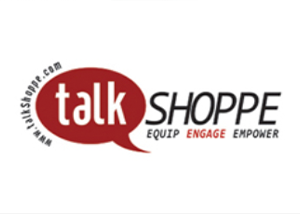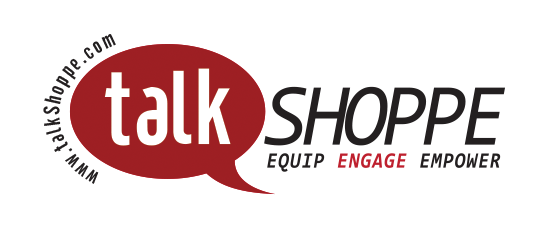Good morning and happy Labor Day weekend to everyone! You’re on the Real Estate Mortgage Shoppe program. I’m your host, Jo Garner, Mortgage Professional with Evolve Bank and Trust. Have you got a real estate or financing dilemma? We could have a solution for you. Give us a call on the air at 901 535 WREC. That number again is 901 535 9732.
Our general topic today is “Making Your Real Estate and Your Money Work For You.” Our co-host today has recently been a guest on William Shatner’s show “Moving America Forward.” Jeremy Veldman of Turnkey Properties knows how to make your real estate and your money work for you.
Money wasn’t working too hard yesterday—and neither was anyone else, so mortgage rates remained flat. 30YR FIXED – 4.625%
• FHA/VA – 4.25% or 4.75%
• 15 YEAR FIXED – 3.75%-3.875%
• 5 YEAR ARMS – 3.0-3.50% depending on the lender The big Employment report comes out Friday and this should tell us where rates are going to go for awhile.
(Jo) My financial advisor keeps telling me not to put all my eggs in one basket. He says put some in stock, some in bonds or annuities, metals and in real estate. I’ve been lucky that my real estate remained standing even when stocks didn’t. The value on the real estate in Memphis fell a few years ago but the rents didn’t so it was and continues to be a great way to make your real estate and your money work for you. Why not get a piece of the action?
Real Estate values in the Memphis area have started to come back up but with mortgage rates still in the 3’s and 4’s, you can make yourself comfortable with a larger home and smaller payment than what you’re paying now. This can especially work if you are currently renting and choose to buy a home. You can find real estate to buy for investments too. Its so much easier to get a good positive cash flow when you are buying homes to rent out because rents keep going up even though prices on houses are still comfortably low and the payments are ultra low too. Purchasing real estate now can save you hundreds of dollars per month compared to what it would have cost you in 2006 or even what it could cost you in the future.
I am doing more cash out refinances for homeowners now than ever since 5 or 6 years ago. What are they doing with the cash out they get over and above what they owe ? Some are refinancing their homes with a much bigger loan than what they owe so they can —–go make money with it. They are using the money to buy more homes, invest in stocks, pay off higher interest rate debt..on and on.
I have a customer who is around retirement age. She doesn’t owe much on a rental property but she does owe about $700 per month on a car loan and a credit union installment loan. She refinanced her rental property and even after pulling out enough money from the cash out to payoff the old mortgage , ALSO had enough to pay off the car and installment loan, saving her a few hundred dollars per month. If you want to run the numbers on YOUR refinance or home purchase loan, I would like very much to crunch the numbers for you. Give me a call on the air at 901 535 WREC . That’s 901 535 9732. Or you can reach me OFF the air at 901 482 0354. That’s 901 482 0354 or catch me on my blog www.MortgageLoansBlog.com
If you are truly wanting to make your money work for you then let’s compare your closing costs to the net benefits you’re getting on a refinance. If you’re truly wanting to make your money work for you on a PURCHASE loan, ask the seller to pay the maximum amount he’s allowed to pay—even if you have to offer a little more on the price.
(Jo) If you are thinking about buying a house or two or three, get with an experienced loan officer and get preapproved first. If you are short on funds to close, I have various types of down payment assistance programs for some of you. I’ve had so many customers of mine say, “I haven’t got any money to put down.” We pull out the treasure hunting kit and find down payment money in the most unexpected places. The modern 401K retirement savings, in many cases, will let you borrow against it and pay it back on flexible terms. Gifts from family members, down payment assistance programs, piggy-back loans and the list goes on and on.
If you need a boost on your credit scores, I have the credit simulators that can help you ratchet those scores up a little with the least amount of money and time on your part. A good credit score where you can get the best pricing on mortgage rates is 740 or above. There are several pricing tiers below that so the object of the credit simulator is to help you get a better price on your loan than you were getting with the lower scores. Call me and let’s talk on the air at 901 535 WREC. That’s 901 535-9732 or call me off the air and we can talk more privately at 901 482 0354.
Today we’re talking about Making Your Real Estate and Your Money Work For You. Jeremy Veldman with Turnkey Properties, has some ideas to share on how to do this. Jeremy, how do I make real estate and my money work for me?
Questions for Jeremy Veldman to answer:
1. What are some of the things you are doing at Turnkey Properties that give individuals options for making their money work for them?
2. I’ve heard you have developed a new info product that teaches investors how to use Rent-to-Own financing to build wealth. Tell us about that.
3. What are some of the advantages of working with a Turnkey company like yours as opposed to doing it yourself?
4. What makes Turnkey Properties unique from the other “turnkey style” companies?
5. Questions for Jo Garner to answer:
1. You mentioned earlier in the show some ways to make your money work for you. How can you get the most from a mortgage?
A. To get the best deal on your mortgage you want to pay the least amount of interest with the least amount of costs. Here’s a bit of advice: The lowest rate is almost never the best deal. If you aren’t planning to live in the house you are financing for more than 3 to 5 years, then go with a little higher rate so that you aren’t hitting heavy on your emergency fund.
B. Get rid of the private mortgage insurance. On a conventional loan private mortgage insurance is referred to as PMI. PMI insures the lender in case the borrower defaults on the loan. It doesn’t help the borrower—just the lender so the least amount you pay the better. If you buy a house with a conventional loan and put down less than 20%, you are probably going to pay private mortgage insurance unless the first mortgage is at no more than 80% and your adding a piggy-back 2nd mortgage to make up the difference between what you can put down.
Another way to get rid of private mortgage insurance is to ask your current lender to remove it. If they think the value on the house puts your loan at 78% loan-to-value, then they need to remove it. They may get an appraisal just to make sure you have paid down enough ( and you will probably have to pay for the appraisal.) and you have to wait 2 to 5 years into the loan to even make the request. The lender will check and make sure you have not had any 30 to 60-day-late payments on the mortgage over the last 2 years.
Other ways to make your money work for you is by refinancing or finding other ways to pay off higher interest rate debt.
If you are determined to use every available opportunity to make your money work for you, think about the ways you can use LEVERAGE in real estate. For example, I have a customer who has several rental properties and is now cashing out by refinancing to get the 20 % down payment to use for purchasing multiple other properties he is contracting to buy .
2. What is your formula for deciding how much closing costs to pay ?
A. There are 3 basic types of closing costs—the kind the seller pays, the kind the lender pays and the kind the BUYER pays. If you’re not going to own the house for more than 3 years, you really don’t want to pay much in costs. Most loan programs on purchase loans allow the seller of the property to pay closing costs and prepaid taxes and insurance for the buyer up to 3 to 6% of the sales price if you negotiate it in the contract. Sometimes, especially on refinances, the lender can quote a little higher-than market rate and pay the costs for the buyer. This may mean a rate a measily .125% higher than a normal rate. This works great as long as you are comfortable with the mortgage payment. Last but not least, you can pay the costs yourself or using grants or other down payment assistance. As for the formula for calculating the best closing costs to loan amount ratio—here it is—for a refinance, if you’re going to own the house for less than 5 years you will need to recapture your costs in about 18 months. For instance if you are borrowing $100,000 and your closing costs is 2000, look at how much money you saving each year—say $200/mo. Divide 2000 in closing by 200 per month and how many months do you get? That ‘s how many months it takes to “recapture” your closing cost
Real Estate Tip of the Week (Jeremy Veldman on the advantages of having a self-directed 401K)
Jo’s announcements : Next Wednesday at Talk Shoppe, Craig Cline of Midsouth Credit will be sharing “How To Improve Your Credit Scores” 9A to 10A at DeVry University 6401 Poplar Ave 6th floor in Memphis . Talk Shoppe offers free education and networking to anyone interested in real estate or business. For more information about Talk Shoppe go to www.TalkShoppe.BIZ
Next Saturday 9AM right here on News Radio 600 WREC on the Real Estate Mortgage Shoppe the Lawhon’s of Lawhon Landscaping will be discussing cost-cutter techniques to add curb appeal to your home. They will be sharing some ways to better enjoy your outdoor space and of course, we’re going to cover smart ways to structure your financing to meet your goals. For a podcast of this show and other shows, go to www.mortgageloansblog.com
Transition Music: “I Might Be Cheap, But I’m Not Broke” Rik Roberts; “Money Song” by the Muppets; “21” by Dean Martin and Roger Miller
Jo Garner’s Bio
www.MortgageLoansBlog.com www.MoneyShoppe.NET (901) 482 0354 jogarner@mindspring.com
Jo Garner is a mortgage officer with extensive knowledge in tailoring mortgages to her customers who are refinancing or purchasing homes all over the country. She offers conventional, FHA, VA or other loan programs for refinancing and purchases.
Jo can help you look at rent vs buy, when it makes sense to refinance, how to get the best deal on your home purchase financing.
Jo Garner has been in the real estate/financing business for over 20 years. She got her start in Portland, Maine where she first began her real estate career. She received her real estate education from the University of Southern Maine and was personally mentored in San Diego, California by Robert G. Allen, author of Nothing Down, Creating Wealth and The Challenge.
On moving back to West Tennessee in 1987, she went into business buying and selling discounted owner-financed notes secured on real estate. In 1990 Jo went to work for a residential mortgage company and has been a mortgage loan officer for over 20 years. Her goal is to offer excellent, affordable service to her customers, tailoring the loan programs to the specific needs of her clients.
In addition to her work in the mortgage field, Jo Garner is the primary sponsor and founder of Talk Shoppe in Memphis. www.TalkShoppe.BIZ She hosts the Real Estate Mortgage Shoppe radio show on News Radio AM 600 WREC and on IHEART radio. Find articles and past podcasts on her blog www.MortgageLoansBlog.com .
For real estate financing solutions, plug into the Real Estate Mortgage Shoppe program. You can find mortgage rates, FHA Streamline refinance with no out-of-pocket costs, refinancing options, home purchase loan programs, answers and real estate, money-saving tips and more.





